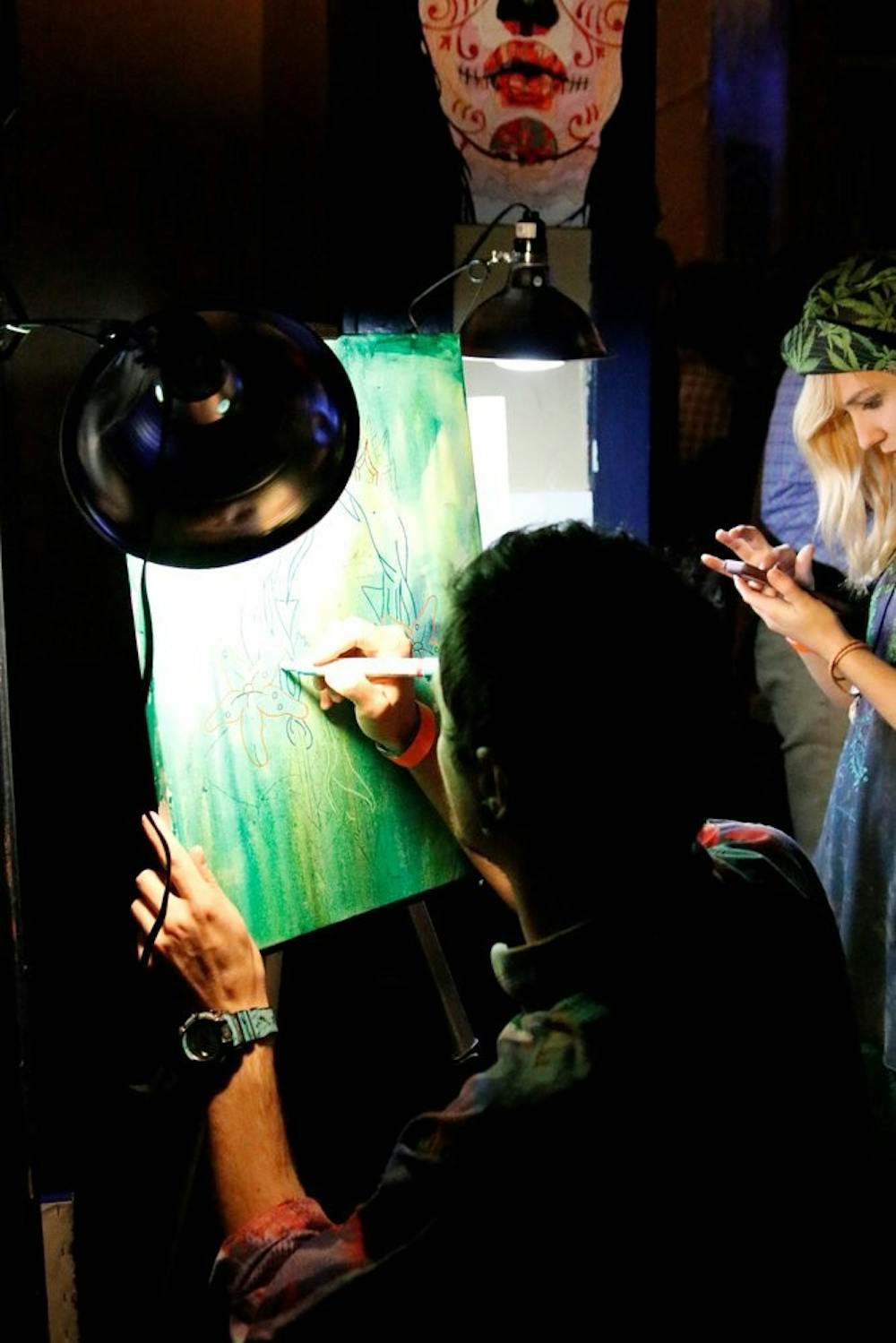Several Auburn students are shedding their shoes and braving campus with bare feet.
Why do they do it? Some students just want to try something different.
"It's a new way of experiencing the world around you," said Jonathan Blanchard, a sophomore in business. "It's fun to feel what you're walking on."
Blanchard tried walking barefoot for a day and enjoyed the experience.
Students sometimes vow to go barefoot temporarily to make a statement about a social issue.
According to TOMS shoes, they advertised a worldwide event to raise awareness for those without shoes by having people pledge to go barefoot April 16. The event had participants in 200 cities in 12 countries.
Other people simply don't like shoes and would rather go barefoot.
Kevin Jones, a sophomore, goes everywhere barefoot except places that require shoes for service. Jones is well known on campus for his constant bare feet.
Jones said he isn't trying to make a statement by not wearing shoes.
"I just don't like shoes," Jones said. "They make my feet feel weird."
Jones isn't sure if he will wear shoes this winter.
Barefooters on Auburn's campus don't seem to be causing any problems.
"I don't have a problem with people going around barefoot," said Betsy Munger, a junior in graphic design. "I just think it's funny."
Many people around the world share Jones' love for barefeet.
The Society for Barefoot Living, an organization that promotes "going barefoot pretty much everywhere, all the time," has 1,269 members in all 50 states and in 53 other countries.
On their Web site, www.barefooters.org, the SBL says barefooting is healthy and decreases the risk of athlete's foot, bunions and painful feet.
According to a local podiatrist, the safety and medical concerns of the barefoot lifestyle outweigh the benefits.
Dr. Brett Stark, a podiatrist at Auburn Foot Care Center, said he is opposed to the barefoot lifestyle for two reasons.
The most obvious risk of walking around barefoot is a foreign object, like a piece of glass or a nail, becoming lodged in the foot.
Stark said he often performs surgeries to remove foreign bodies from people's feet.
"A lot of the foreign body surgeries I have done have been on Auburn University students," Stark said.
Stark also said the foot needs support when walking, especially on uneven or rocky terrain.
"You need a shoe with a good balance between support and cushioning, like an athletic shoe or Birkenstocks," Stark said.
Some students agree with doctors' opinions and are noticing the negative effects of a barefoot lifestyle.
"I have some back pain issues, and when I went to the podiatrist I was told that prolonged periods of time walking around barefoot or in flip-flops leads to an increased occurrence of foot injury and back pain because of the different gaits of people's feet," said Scott Gentry, a senior in mechanical engineering. "Few people have perfectly neutral gaits and most of us should wear corrective footwear."
Many people enjoy walking on the beach or in the grass barefoot, but a few students in Auburn live their lives mostly shoeless.
These students inspire some and baffle others. For now, no one is complaining--as long as the clothes stay on.
Do you like this story? The Plainsman doesn't accept money from tuition or student fees, and we don't charge a subscription fee. But you can donate to support The Plainsman.





